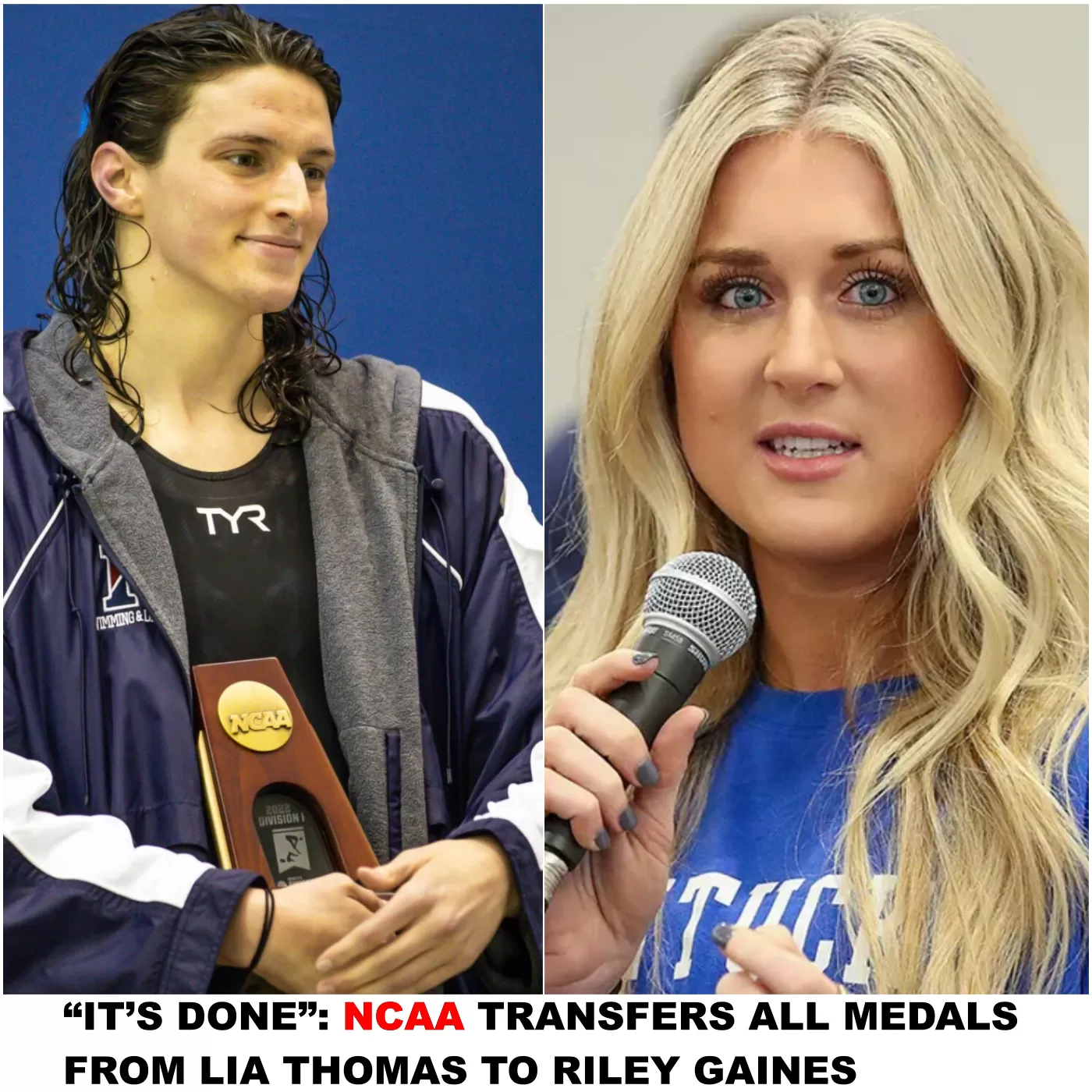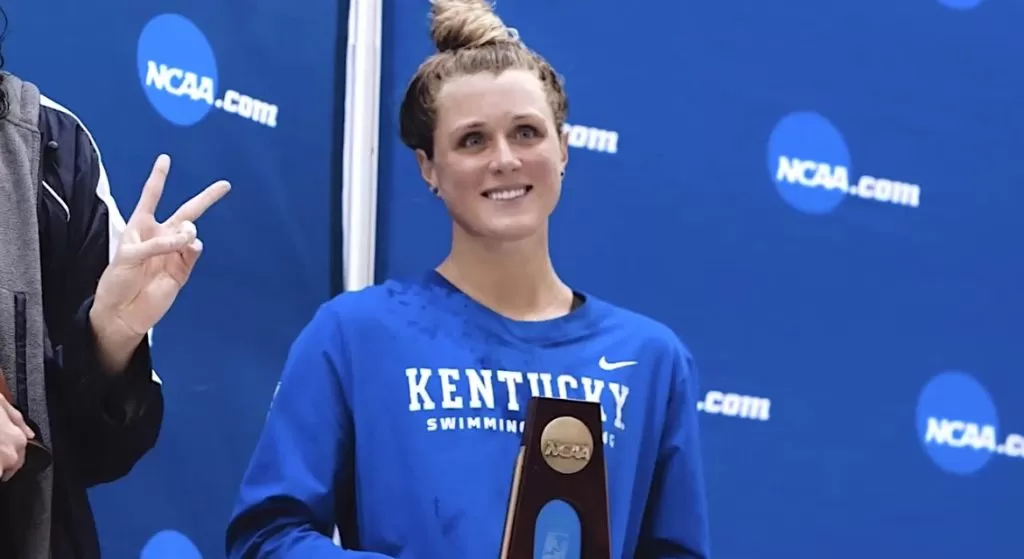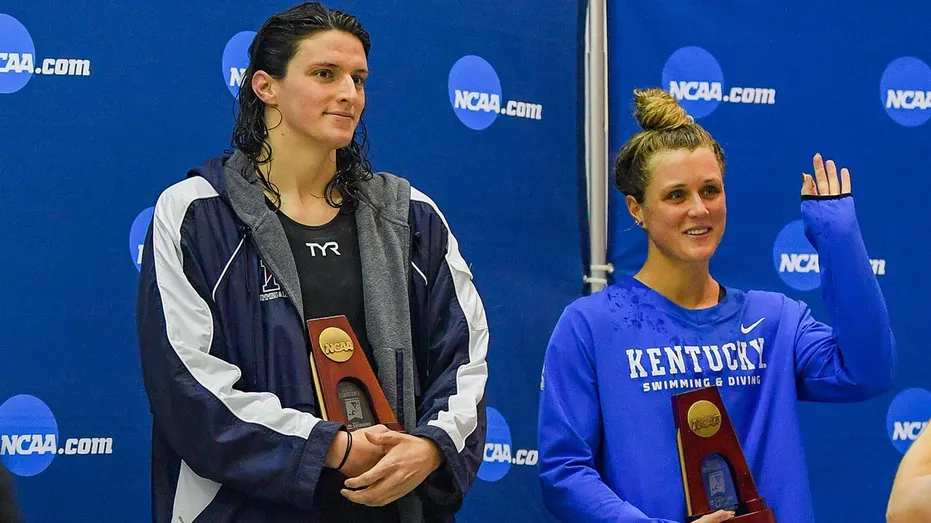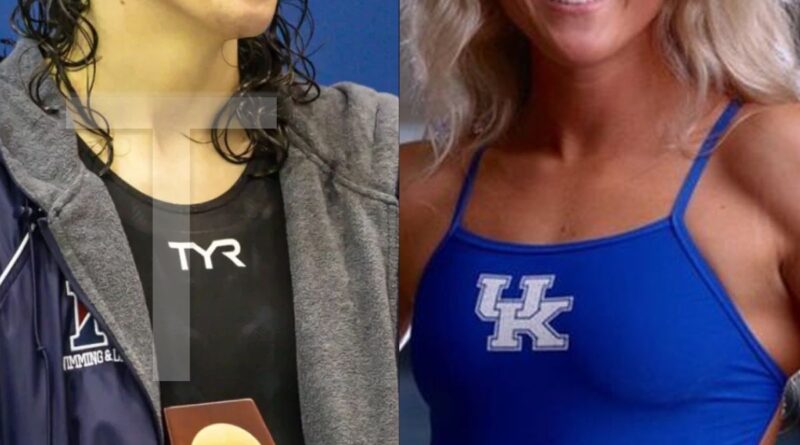“NCAA Officially Transfers All Medals from Lia Thomas to Riley Gaines: Decision Finalized”-nhung
In a landmark decision that has sparked widespread debate and controversy, the NCAA has announced the transfer of all medals won by transgender swimmer Lia Thomas to her competitor, Riley Gaines. This unprecedented move comes after months of intense scrutiny and legal challenges surrounding the inclusion of transgender athletes in women’s sports.

Lia Thomas, who made headlines as the first openly transgender woman to win an NCAA Division I swimming championship, has been at the center of a heated discussion on gender identity and athletic fairness. Critics argued that Thomas, who competed in men’s swimming events before transitioning, had an unfair advantage over her cisgender female competitors. Supporters, on the other hand, championed her right to compete in accordance with her gender identity.

The decision to reassign the medals to Riley Gaines, who finished behind Thomas in several events, marks a significant shift in the NCAA’s stance on this contentious issue. The governing body cited new guidelines and emerging scientific consensus on the impact of testosterone levels and physical development on athletic performance as the basis for their ruling.
In a statement, the NCAA explained, “After thorough review and consideration of the evolving understanding of transgender participation in sports, we have decided to transfer the titles and medals from Lia Thomas to Riley Gaines. This decision is aimed at ensuring fairness and maintaining the integrity of women’s sports.”
Riley Gaines, who has been vocal about her concerns regarding Thomas’s participation, expressed a mix of relief and vindication. “It’s been a challenging journey, but I’m grateful for this outcome,” Gaines said. “I have always respected Lia as a person, but I believe in fair competition. This decision reaffirms the importance of a level playing field in women’s sports.”

The reaction to the NCAA’s decision has been polarized. Advocacy groups for transgender rights have condemned the move, arguing that it undermines the progress made toward inclusion and equality. “This sets a dangerous precedent,” said a spokesperson for the Human Rights Campaign. “Transgender athletes deserve the same opportunities as their cisgender peers. This decision not only takes away Lia’s achievements but also sends a message that transgender individuals are not welcome in sports.”
Conversely, supporters of the decision argue that it addresses legitimate concerns about competitive fairness. “This is about preserving the integrity of women’s sports,” said a representative from the Women’s Sports Foundation. “We must find a balance that respects both the rights of transgender athletes and the principles of fair competition.”
The NCAA’s decision has also prompted a call for clearer guidelines and policies regarding transgender athletes. Many are urging for comprehensive studies and an open dialogue to create an inclusive yet fair framework for all athletes.
As the sports world grapples with this complex issue, the case of Lia Thomas and Riley Gaines serves as a pivotal moment in the ongoing conversation about gender, identity, and fairness in athletics. The resolution may not satisfy everyone, but it underscores the need for continued discussion and understanding as society navigates the evolving landscape of sports and inclusion.
